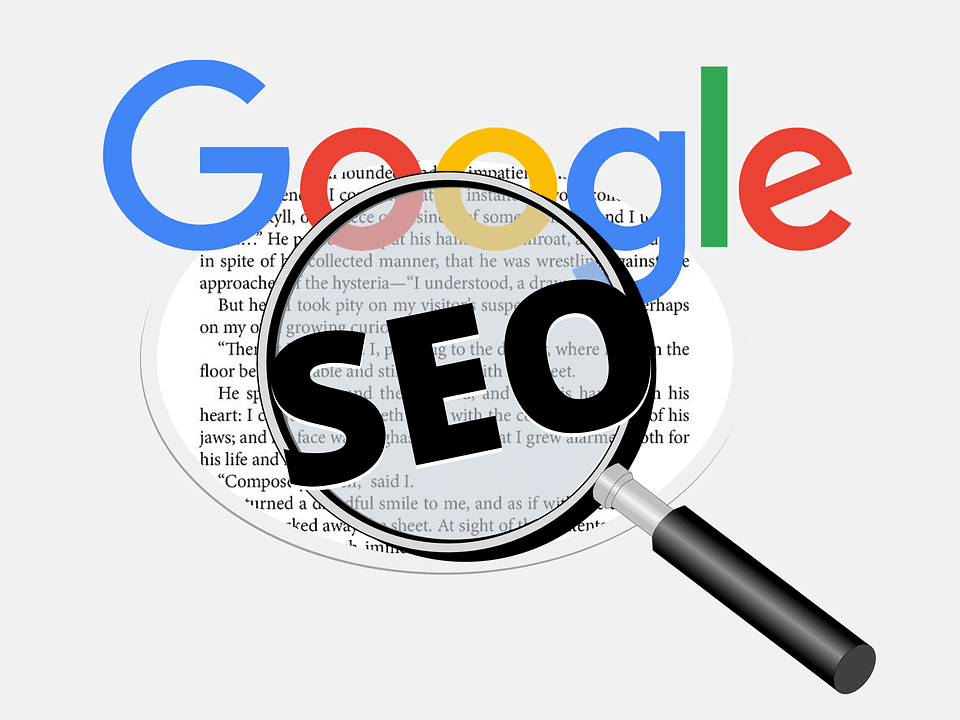
Table of Contents
Ultimate Guide to SEO: Search Engine Optimization in Digital Marketing
In the world of digital marketing, understanding SEO (Search Engine Optimization) is crucial for enhancing your company’s online presence. When it comes to search results, effective SEO tactics can significantly improve your visibility in the search engine results pages (SERPs). By optimizing your website, you can ensure that users find your service when they search for something relevant to your offerings. This involves employing various ranking factors that influence how search engines like Google rank your pages. The goal is to attract your target audience through organic search rather than relying solely on paid search methods like Google Ads.
To effectively learn SEO, it’s essential to understand how search engines work and how to create content that aligns with what users are looking for. Utilizing tools such as Google Search Console can help you monitor your search engine rankings and identify areas for improvement. An effective marketing strategy should incorporate both SEO and PPC (pay-per-click) to maximize your online reach. It’s also vital to avoid black hat SEO practices that could harm your site’s credibility.
Furthermore, on-page optimization is a significant part of SEO that involves tweaking elements on your website to improve search rankings. This includes using relevant search terms and enhancing user experience. To stay ahead in search marketing, it’s wise to follow SEO tips from reputable sources like MOZ and continuously adapt to Google’s evolving algorithms. Ultimately, mastering SEO can elevate your business in the competitive digital landscape.
What is SEO and Why is it Important?
SEO stands for Search Engine Optimization, a critical component of any company’s digital marketing strategy. When it comes to SEO, it’s essential to understand how search engines like Google and other search engines function. They use complex algorithms to help search engines analyze and rank web pages based on their relevance to search queries. By optimizing your website for organic search results, you can increase your visibility and appear higher in search rankings, which is crucial for driving search traffic to your site.
Understanding SEO fundamentals is important for any business looking to Pronto Live Marketing in the digital landscape. SEO is important because it not only enhances your website’s visibility but also provides a cost-effective alternative to search engine marketing methods like SEO and paid advertising. The types of search include organic search traffic and paid results, with the former often leading to more sustainable and long-term success. An agency specializing in SEO can effectively tailor strategies to improve your rankings, ensuring your company appears on the first page of Google for relevant searches, thereby maximizing your online presence.
Understanding the Basics of SEO
Search Engine Optimization (SEO) is essential for enhancing a website’s visibility on search engines. Understanding the basics involves knowing how keywords work, creating quality content, and optimizing meta tags. Effective SEO strategies lead to higher organic traffic and improved user engagement, ultimately benefiting online presence.
How Does SEO Work for Business?
SEO, or Search Engine Optimization, enhances a business’s online visibility by optimizing its website for search engines. This involves using relevant keywords to attract organic traffic and improve ranking in search results.
Effective SEO strategies include optimizing website content, improving loading speed, and ensuring mobile-friendliness. By providing valuable information, businesses can engage users and increase conversion rates.
Why is Search Engine Optimization Important for Businesses?
Search Engine Optimization is crucial for businesses as it enhances online visibility, driving organic traffic to their websites. By optimizing content and improving search rankings, companies can attract more potential customers.
Moreover, effective SEO strategies lead to higher conversion rates, fostering customer trust and establishing brand authority in a competitive market.

How to Optimize Your Site for Search Engines?
To understand what is seo, it’s essential to recognize that seo means optimizing your site to improve visibility in search results. This involves implementing seo best practices that help search engines understand your content better. By focusing on both on-page and off-page seo, you can enhance your site’s ranking in google’s search results, ultimately achieving a position at the top of search.
SEO is important because search engines use complex algorithms to determine which pages to display, and understanding these search engine algorithms is crucial for success. SEO also involves utilizing social media marketing and other tools to help drive traffic. For those interested in becoming an seo expert, it’s vital to stay updated on trends, including search volume and how search engines crawl websites.
Essential On-Page SEO Techniques
Effective On-Page SEO techniques are vital for improving website visibility. Key strategies include optimizing title tags and meta descriptions to attract clicks. Additionally, using relevant keywords naturally throughout the content enhances search engine ranking.
Moreover, ensuring proper header tags structure and incorporating internal links can significantly boost user engagement. Regularly updating content keeps it fresh and relevant, further improving SEO performance.
What is Technical SEO and Why is it Crucial?
Technical SEO refers to the optimization of a website’s infrastructure, ensuring that search engines can crawl, index, and render it effectively. This process includes improving site speed, mobile-friendliness, and XML sitemaps.
It is crucial because proper Technical SEO enhances the user experience, boosts search engine rankings, and ultimately drives organic traffic. Without it, even the best content may fail to reach its audience.
Utilizing SEO Tools for Site Optimization
Utilizing SEO tools for site optimization is essential for improving online visibility. These tools provide insights into keyword performance, competitor analysis, and site health. By leveraging data-driven recommendations, businesses can enhance their content strategy, ensuring that it aligns with user intent and search engine algorithms.
Regularly monitoring analytics helps identify growth areas and track progress. Implementing changes based on these insights can lead to higher organic traffic and better user engagement. Ultimately, an effective SEO strategy not only boosts rankings but also drives conversions, fostering long-term success.
What are the Different Types of SEO?
“What is SEO? SEO, or Search Engine Optimization, refers to the strategies and techniques used to improve a website’s visibility in search engine results. Understanding the different types of SEO is important for businesses looking to Pronto Live Marketing online. One key aspect is on-page SEO, which focuses on optimizing website content to tell Google what the page is about, while off-page SEO emphasizes building backlinks to enhance credibility and authority in the world of search.
Another vital area is technical SEO, which ensures that a website is structured properly for search engines to crawl and index efficiently. Together, these elements contribute to an important part of SEO: achieving a higher in the search rankings. Ultimately, effective SEO involves a combination of strategies tailored to improve overall online presence and user experience.
Exploring On-Page vs Off-Page SEO
Exploring On-Page SEO involves optimizing individual web pages to improve their search engine rankings. This includes enhancing content quality, using relevant keywords, and improving meta tags.
In contrast, Off-Page SEO focuses on external factors, such as backlinks and social media engagement, which help to build a site’s authority and reputation.
Understanding Local SEO and Its Benefits
Local SEO focuses on optimizing a business’s online presence to attract customers from specific geographic areas. By improving visibility in local search results, businesses can connect with their community effectively.
Implementing Local SEO strategies enhances brand awareness and drives foot traffic, ultimately leading to increased sales and customer loyalty.
How to Implement Technical SEO Strategies?
To implement Technical SEO strategies, begin by conducting a thorough site audit to identify issues affecting performance. Next, ensure your website has a clean URL structure and is mobile-friendly. Focus on improving site speed and optimizing XML sitemaps for better indexing.
Additionally, utilize schema markup to enhance search visibility and improve rich snippets. Regularly monitor crawl errors through tools like Google Search Console. Lastly, ensure strong internal linking to enhance user navigation and distribute page authority effectively.
How to Conduct Keyword Research Effectively?
To conduct keyword research effectively, begin by understanding what is SEO and its significance in driving organic traffic. Utilize tools like Google Keyword Planner and SEMrush to identify relevant keywords that align with your content goals. Analyze search volume, competition, and trends to prioritize your keywords effectively. It’s also crucial to consider the intent behind the searches, as this will guide your content creation. Remember, focusing on long-tail keywords can often yield better results. Ultimately, mastering keyword research is essential, as SEO is important for improving visibility and attracting your target audience.
Identifying Keywords with High Search Intent
Identifying keywords with high search intent is crucial for effective digital marketing. By analyzing user behavior, you can determine what potential customers are truly seeking. Focus on long-tail keywords that reflect specific queries, as these often indicate a higher likelihood of conversion.
Utilizing tools like Google Analytics and keyword planners can help uncover valuable insights. Assessing competition and search volume allows you to prioritize keywords that align with your business goals.
Using Tools for Keyword Research
Using tools for keyword research is essential for anyone looking to enhance their online presence. Understanding “what is seo is the first step in this process. SEO, or Search Engine Optimization, involves optimizing content to rank higher in search engine results. By leveraging keyword research tools, you can identify popular and relevant keywords that resonate with your target audience.
These tools help you discover phrases that potential customers are searching for, making it easier to tailor your content accordingly. It’s crucial to focus on why seo important because implementing effective keyword strategies can significantly increase organic traffic to your website. Ultimately, keyword research lays the foundation for successful SEO practices, driving better engagement and conversion rates.
Incorporating Keywords into Your Content
Incorporating keywords into your content is a crucial strategy for enhancing your website’s visibility on search engines. By strategically placing keywords that resonate with your audience, you can drive organic traffic and improve your site’s ranking. Keyword research is the first step; understanding what terms users search for allows you to tailor your content effectively.
Once you’ve identified your keywords, it’s essential to integrate them naturally throughout your text. Overstuffing your content with keywords can lead to a poor user experience and may even result in penalties from search engines. Aim for a balance, ensuring that your content remains engaging and informative while still incorporating relevant keywords.
Utilizing keywords in headings, subheadings, and meta descriptions can further optimize your content. This not only helps search engines understand the context of your content but also improves the overall user experience.
What are the Best SEO Strategies for Ranking Higher?
To achieve higher rankings on search engines, implementing effective SEO strategies is essential. One of the foundational elements is keyword research, which involves identifying the terms and phrases that your target audience is using to search for products or services. By optimizing your content around these keywords, you can enhance your visibility. Additionally, on-page SEO elements such as title tags, meta descriptions, and header tags should be optimized to align with your primary keywords while providing valuable information to users.
Another crucial aspect is creating high-quality content that not only resonates with your audience but also encourages engagement. Content that answers common questions, provides solutions, or entertains has a higher chance of being shared, which can lead to increased traffic and backlinks. Furthermore, investing in technical SEO ensures that your website is structured properly, loads quickly, and is mobile-friendly. This enhances user experience, which is a significant ranking factor for search engines.
Lastly, building a robust backlink profile through outreach and guest blogging can significantly improve your domain authority. Quality links from reputable websites signal to search engines that your content is trustworthy and valuable, further boosting your chances of ranking higher.
Developing a Comprehensive SEO Plan
Developing a comprehensive SEO plan involves several critical steps to enhance online visibility. First, conduct thorough keyword research to identify relevant terms and phrases that potential customers are searching for. This helps in optimizing website content effectively.
Next, focus on on-page optimization, including meta tags, headers, and internal linking, to improve site structure and user experience. Additionally, invest in quality content creation that provides value to your audience, incorporating the identified keywords naturally.
Finally, monitor your SEO performance using analytics tools, adjusting your strategies based on data insights to ensure continuous improvement and adaptation to search engine algorithms.
Understanding the Role of Content Marketing in SEO
Content marketing plays a pivotal role in enhancing SEO effectiveness by creating valuable, relevant content that attracts and engages target audiences. This alignment not only boosts organic traffic but also fosters brand loyalty and trust. High-quality content can improve search engine rankings by incorporating targeted keywords, which increases visibility in search results.
Moreover, well-crafted content encourages user interaction, reducing bounce rates and increasing dwell time—factors that search engines consider when ranking pages. By integrating content marketing strategies with SEO best practices, businesses can create a synergistic effect that maximizes their online presence and drives sustainable growth.
Analyzing Competitors’ SEO Efforts
Analyzing competitors’ SEO efforts is a crucial strategy for enhancing your own online visibility. By examining the keywords they target, you can identify gaps in your own content strategy and discover opportunities for improvement. Tools like SEMrush or Ahrefs allow you to track their backlink profiles, revealing which sites are linking to them and why. Understanding their content marketing tactics can also provide insights into what resonates with your shared audience.
Moreover, analyzing competitors’ SEO performance can guide you in tailoring your own strategies, enabling you to stay competitive in your niche. By leveraging this information, businesses can refine their digital marketing approaches, ultimately driving more traffic and improving their search engine rankings.

How to Measure SEO Success?
Measuring SEO success involves tracking various metrics that indicate how well your website is performing in search engine results. One of the primary indicators is organic traffic, which refers to the number of visitors arriving at your site through search engine results. Tools like Google Analytics can help you monitor this metric over time, allowing you to see trends and identify which keywords are driving the most traffic.
Another critical metric is keyword rankings. Regularly checking the positions of your targeted keywords in search engine results pages (SERPs) can give you insights into your SEO performance. Tools such as SEMrush or Ahrefs can provide detailed reports on your keyword rankings, helping you assess whether your optimization efforts are yielding the desired results.
Additionally, consider tracking conversion rates, which measure how many visitors take a desired action on your site, such as making a purchase or signing up for a newsletter. High conversion rates often indicate effective SEO strategies, as they signify that your traffic is not only increasing but also relevant to your business objectives. Lastly, keep an eye on bounce rates to understand if visitors are engaging with your content or leaving quickly, which could signal the need for further optimization.
Utilizing Google Analytics for SEO Tracking
Utilizing Google Analytics for SEO tracking is essential for understanding website performance. By monitoring key metrics such as organic traffic and bounce rates, you can gain insights into how users interact with your site. Implementing goal tracking allows you to measure conversions and see which keywords drive the most value.
Another valuable feature is the Behavior Flow report, which illustrates how visitors navigate through your site. Analyzing this data helps identify areas for improvement, such as optimizing landing pages or enhancing user experience. Regularly reviewing your SEO metrics in Google Analytics ensures informed decisions for ongoing optimization.
Key Metrics to Monitor SEO Performance
To effectively monitor SEO performance, it’s crucial to track several key metrics. First, focus on organic traffic, as it indicates the volume of visitors coming from search engines. This metric helps gauge the effectiveness of your SEO strategies. Next, analyze keyword rankings, which provide insights into how well your targeted keywords are performing in search results. Additionally, monitor bounce rate, as a high bounce rate could signal that users are not finding what they need on your site. Lastly, assess conversion rates, as they measure the effectiveness of your site in turning visitors into customers, showcasing the ultimate goal of your SEO efforts.
Adjusting SEO Strategies Based on Data Insights
Adjusting SEO strategies based on data insights is essential for maintaining a competitive edge in the digital landscape. By analyzing user behavior, keyword performance, and traffic sources, businesses can identify what works and what doesn’t. Implementing these insights allows for targeted optimizations, such as refining content to meet audience needs or enhancing backlink profiles to improve authority.
Regularly reviewing analytics ensures that strategies remain aligned with evolving market trends. This iterative process not only boosts search engine rankings but also enhances overall user experience, leading to increased conversions and customer loyalty.
The basics of search engine optimization
Search Engine Optimization, or SEO, is a crucial digital marketing strategy aimed at enhancing a website’s visibility on search engines like Google. The primary goal of SEO is to increase organic traffic by improving a site’s ranking in search results. Key components include keyword research, which involves identifying the terms users search for, and optimizing content around those keywords.
Another essential aspect of SEO is on-page optimization, which focuses on enhancing individual web pages to rank higher. This includes optimizing meta tags, headings, and images. Additionally, off-page optimization involves building backlinks to improve a site’s authority and credibility.
How Does Technical SEO Work?
Technical SEO focuses on optimizing the technical aspects of a website to improve its visibility in search engine results. It involves ensuring that a site is easily crawlable by search engine bots, which includes creating a logical site structure and using an XML sitemap. Additionally, page speed is crucial; faster loading times enhance user experience and can positively impact rankings. Other essential elements include optimizing mobile-friendliness and implementing secure HTTPS protocols to protect user data. Lastly, using structured data markup helps search engines understand the content better, potentially leading to rich snippets in search results.
What is On-page SEO?
On-page SEO refers to the practice of optimizing individual web pages to rank higher in search engines and earn more relevant traffic. This involves various strategies, including optimizing content, HTML tags, and images. Key elements of on-page SEO include using appropriate keywords, creating compelling meta descriptions, and ensuring proper heading structure. By focusing on these aspects, website owners can enhance their visibility and improve user experience, ultimately leading to higher conversion rates.
What is Off-page SEO?
Off-page SEO refers to the actions taken outside of your own website to impact your rankings within search engine results pages (SERPs). This includes activities such as building backlinks, which are links from other websites that point to yours. The quality and quantity of these links can significantly influence your site’s authority and credibility.
Another critical aspect of off-page SEO is social media marketing, where engagement and shares can drive traffic and enhance visibility. Furthermore, online reputation management plays a vital role, as positive reviews and mentions can improve user trust and encourage more visitors.
What are the best SEO tools?
When it comes to optimizing your website for search engines, using the best SEO tools can make a significant difference. Tools like Ahrefs and SEMrush provide comprehensive keyword research, backlink analysis, and site audits, ensuring your strategies are data-driven. Additionally, Google Analytics and Google Search Console offer invaluable insights into your website’s traffic and performance. Employing these tools can help you identify opportunities for improvement and enhance your overall SEO strategy.
Cracking Open The Local SEO Bucket: Expert Strategies To Shape Success
Cracking Open The Local SEO Bucket is essential for businesses aiming to enhance their online visibility. By implementing expert strategies, companies can effectively target their local audience, driving foot traffic and online engagement. Focusing on Google My Business optimization, local keyword research, and building citations can significantly improve search rankings.
Additionally, leveraging customer reviews and maintaining consistent NAP (Name, Address, Phone) information across platforms fosters trust and credibility. Embracing these techniques ensures sustainable growth and a competitive edge in today’s digital landscape.
Why is SEO Important?
SEO is crucial for enhancing a website’s visibility on search engines, which directly influences its traffic. By optimizing content and structure, businesses can improve their rankings in search results, leading to increased organic traffic. This not only boosts brand awareness but also builds credibility with potential customers.
Furthermore, effective SEO strategies can provide a competitive edge, helping businesses to stand out in crowded markets. Ultimately, investing in SEO translates to a higher return on investment, as it attracts targeted visitors who are more likely to convert into loyal customers.
Paid search vs. organic search – the differences and similarities
Paid search and organic search are two fundamental components of digital marketing that serve to increase a website’s visibility on search engines. The primary difference lies in their approach: paid search involves purchasing ad placements through platforms like Google Ads, while organic search relies on earning traffic through quality content and SEO strategies.
Despite their differences, both methods aim to drive relevant traffic to a website and enhance online presence. They can complement each other effectively; for instance, while paid search can deliver immediate results, organic search builds long-term credibility and trust.
Moreover, both paid and organic search require ongoing analysis and optimization to yield the best results. Marketers often use insights from paid search to inform their organic search strategies, making them interdependent in achieving comprehensive online marketing goals.
How Do Search Engines Work?
Search engines operate by utilizing a combination of algorithms, crawlers, and indexing to retrieve relevant information from the vast expanse of the internet. The process begins with crawlers, also known as spiders or bots, which systematically browse the web to discover new pages and collect data. These crawlers follow links from one page to another, gathering information about the content and structure of each site they visit.
Once the data is collected, it is processed and stored in a database through a process called indexing. This step involves organizing the information so that it can be quickly retrieved when a user performs a search. The search engine creates an index similar to a library’s catalog, allowing it to efficiently locate relevant pages based on specific queries.
When a user enters a search term, the search engine employs complex algorithms to evaluate the indexed content and determine which pages are most relevant. Factors such as keywords, site authority, and user engagement play significant roles in this evaluation. Ultimately, the search engine presents a list of results ranked by relevance, aiming to provide the most accurate and useful information to the user.
How does Google order and rank search results?
Google orders and ranks search results through a complex algorithm that evaluates numerous factors to determine the relevance and quality of web pages. One of the primary objectives is to provide users with the most pertinent information based on their search queries. This process involves analyzing millions of web pages to identify which ones best match the user’s intent. Central to this ranking is what is SEO, or Search Engine Optimization, which is a set of practices aimed at improving a website’s visibility in search engine results. By optimizing content, structure, and various on-page elements, websites can enhance their chances of ranking higher.
Moreover, Google utilizes crawling and indexing to gather information about web pages. Crawlers, or bots, systematically browse the internet, collecting data that is then stored in an index. When a user conducts a search, Google’s algorithm quickly sifts through this vast index to deliver the most relevant results. Factors such as keywords, site speed, mobile-friendliness, and backlinks significantly influence rankings. Understanding what is SEO is crucial for webmasters and content creators, as it enables them to align their strategies with Google’s ranking criteria, ultimately enhancing their online presence and reach.
AI Integration in Marketing: Strategic Insights For SEO & Agency Leaders
As the digital landscape evolves, AI integration in marketing has emerged as a transformative force, particularly for SEO and agency leaders. Leveraging AI tools can streamline processes, enhance data analysis, and ultimately drive better decision-making. For instance, AI-driven algorithms can analyze vast amounts of data to identify trends, consumer behavior, and content performance, allowing agencies to tailor their strategies effectively.
Moreover, AI can optimize SEO efforts by automating keyword research and providing insights into competitive landscapes. This reduces the time spent on manual tasks, enabling teams to focus on high-value activities such as content creation and strategy refinement. By incorporating AI tools, agencies can also improve their predictive analytics, forecasting changes in search algorithms and consumer preferences, which is crucial for staying ahead in the competitive market.
Additionally, machine learning models can enhance personalized marketing efforts by delivering content that resonates with individual users, thus improving engagement and conversion rates. As AI continues to advance, agency leaders must embrace its potential to remain relevant and efficient in their marketing strategies.

Technical SEO Best Practices: How to Improve Discoverability, Crawlability & Rankings
Technical SEO is crucial for enhancing a website’s discoverability, crawlability, and overall rankings on search engines. One of the best practices is ensuring that your site has a clear and logical site structure. A well-organized structure facilitates easier navigation for both users and search engine bots, making it simpler for them to index your pages. Implementing a comprehensive XML sitemap is also essential, as it guides search engines through your site’s content, helping them find and index all relevant pages efficiently.
Another key aspect is optimizing your website’s loading speed. A fast-loading site improves user experience and reduces bounce rates, signaling to search engines that your content is valuable. Additionally, employing responsive design ensures that your site performs well on various devices, which is increasingly important in today’s mobile-centric world. Regularly checking for broken links and implementing redirects for outdated URLs can also enhance crawlability and prevent user frustration.
Finally, leveraging schema markup can provide search engines with additional information about your content, improving visibility in search results. By following these technical SEO best practices, you can pave the way for better rankings and increased organic traffic.
Google Search Algorithm Update Targeting Explicit Deepfakes
In a bid to enhance the integrity of its search results, Google has announced a significant update to its search algorithm aimed at combating the proliferation of explicit deepfakes. These manipulated media files, which can mislead audiences by depicting individuals in false and often inappropriate contexts, have raised serious concerns regarding misinformation and digital consent. As deepfake technology becomes increasingly sophisticated, it poses unique challenges for platforms that prioritize user safety and accurate representation.
The latest algorithm update employs advanced machine learning techniques to identify and demote explicit deepfakes in search results. By analyzing patterns and metadata associated with such content, Google aims to create a safer online environment. This initiative not only seeks to protect individuals from the harmful effects of non-consensual deepfake creations but also strives to uphold the credibility of information accessible through its platform.
Google’s commitment to addressing the challenges posed by explicit deepfakes reflects a broader industry trend towards responsible content management. As consumers become more aware of the risks associated with manipulated media, the importance of trust in digital platforms has never been more critical. This update marks a proactive step in ensuring that the search experience remains reliable and secure for all users.








